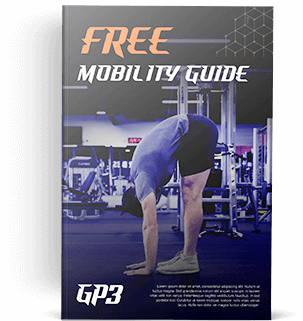Key Points:
- Beware the purity police, those individuals who demonize every enjoyable activity (or substance) under the sun.
- On that note, the WHO has recently labeled aspartame, the common diet soda sweetener, as “possibly carcinogenic.”
- What this actually means is much more nuanced, and as ever, moderation is key.
Estimated reading time: 5-10 minutes
Listen to this episode on Spotify!
Well, it’s official. Or, maybe, possibly, somewhat, sort of…official? Last week, the IARC, the World Health Organization’s cancer research arm, declared aspartame “possibly carcinogenic to humans.”
For those unfamiliar, aspartame is one of the most commonly used artificial sweeteners, most frequently found in diet sodas. It’s also one of the most studied food additive substances on the planet. Researchers have been trying and failing to prove it has definitive links to cancer for decades. It’s similar to caffeine, in that way. Neither are likely to be harmful to you unless consumed in unbelievably large amounts. But more on that later.
It should go without saying, but for nutrition, we need nuance and flexibility, not absolutes. Each and every one of us has the responsibility and ability to determine, for ourselves, the optimal amount of any activity in which we want to engage or substance in which we want to partake. It’s entirely possible that for certain people, the appropriate amount of certain activities or substances is indeed zero. But again, that’s determined on an individual level, not a societal one. It’s why cigarettes aren’t illegal despite their massive, undeniable health risks.
So, let’s unpack what this IARC announcement really means.
In a humorously titled article from The Atlantic, “Being Alive is Bad For Your Health,” author Amanda Mull provides some important context. The IARC has four categories of carcinogenic substances.
- Group 1: Carcinogenic
- Group 2A: Probably Carcinogenic
- Group 2B: Possibly Carcinogenic
- Group 3: Not Currently Classifiable
In the latest announcement, the IARC placed aspartame in Group 2B: Possibly Carcinogenic. Notice the strong stance they took there. What this means in real, practical terms, is that they don’t have strong enough evidence to definitively say that it contributes to cancer. To channel comedian Demetri Martin’s “Road May Not Be Icy” bit about optimistic traffic signs, the category could just as easily be labeled “Possibly Not Carcinogenic.” It means the same thing.
As Ed Yong pointed out in a different Atlantic article taking issue with the WHO’s stance on processed meats, Category 2B’s vagueness and the sheer number of items in it make this classification so unhelpful that it probably shouldn’t exist. At this point, all this categorization for aspartame accomplished was fear mongering and spawning some clickbait articles (and counterpoints like this one that simply used a clickbait title). Hey, I’ve gotta get your attention somehow!
And as I mentioned a couple weeks ago in the piece called, “How much should you worry about this?”, if concern about something will not lead you to change your behavior, it deserves next to none of your time, energy, and attention. Here’s what I believe to be the perfect example to illustrate this concept.
Relative vs. Absolute Risk
Perhaps you’ve read that eating a large amount of smoked meats, like bacon, sausage, and pepperoni, increases one’s risk of colorectal cancer by twenty percent. At first glance, this sounds rather alarming. “Twenty percent?!” you might think to yourself, “I had a next-to-zero percent chance of developing that cancer before, but eating these foods means my risk of this terrible disease is now one in five? No more bacon for me!”
Well, statistics don’t exactly work like that. According to the American Cancer Society, by combining the risk for females (~3.9%) and males (~4.4%) and rounding up, the average person has about a 4.2% chance of developing colorectal cancer in their lifetime. So, that’s the number we must start from when calculating the increased risk of eating too much bacon. What does the math tell us? Well, our everyday, average person’s new risk of colorectal cancer is, drumroll please…
Five percent.
In absolute terms, eating smoked meats adds less than 1% to your risk profile. Now, for you, maybe that’s unacceptable. That’s not for me to judge. Upon learning this information, some people would immediately change their diets, while others would say, “That’s all? Pass me some more bacon.” I definitely fall in the latter camp.
Lies, Damn Lies, and Statistics
Further, that “average person” statistic is so broad as to probably be meaningless anyway. There are way too many lifestyle, genetic, and environmental factors that differ in each person’s case to come up with a broadly accurate average. So, for the sake of argument, let’s say someone has a 25% chance of developing this type of cancer. Eating smoked meats would increase this to 30%. Is that an acceptable risk? Again, only they can decide.
To use an even more extreme example, let’s say one’s risk rate is 70%. Eating too many pepperonis every day will bump their chances up to 84%. But in this case, one might think to themselves, “Well, I’m probably going to develop this cancer anyway, and I freaking love pepperoni. Let’s do it!”
Now let’s bring this full circle…
Returning to the world of diet soda, the article I cited in the first paragraph tells us that despite the “possibly carcinogenic” classification, the WHO also recommended not updating their intake guidelines for aspartame. Set in 1981, this directive indicates that one can safely consume 40 milligrams of the sweetener per every kilogram of bodyweight. In good old U.S. imperial measuring terms, this means that I, a roughly 185 pound human, could consume the equivalent of thirty three diet sodas per day and still come in just under the allowable limit.
So yeah…maybe don’t do that. I’m unsure what else to say, because I can’t imagine anyone actually needs to be told doing that is probably not the best idea. Everything is poisonous (and even fatal) in extreme doses, including water and oxygen, the two most critical substances we need for survival.
I point this out as a reminder to remain wary of the “purity police.”
If I’ve come across as a bit fired up during this piece, I’m not surprised. Nutritional fear mongering pushes my “injustice button” a bit. You see, I have an admittedly vague hypothesis that if humans enjoy a substance or an activity, there will be a particular subset of people who demonize it. And fully. No room for moderation, just “sugar is bad,” “caffeine is bad,” “carbs are bad,” and so on.
You can see this with any tasty component of food (sugar, salt, fat, carbohydrates, etc.) any substance that alters the mind and body (caffeine, alcohol, marijuana, etc.) and even activities like cell phone usage, watching television, or masturbation.
Now, I think few people would argue that an excess of any of these activities or substances could be harmful. To your health, career, relationships, you name it. But at the risk of sounding flippant…duh. Nothing is without consequences, and like I said, you can die from too much of anything. But it’s almost childishly simplistic to declare any substance or activity purely “bad.” This is why I take issue with the WHO’s announcement. Who is it helping?
All it accomplishes is increasing the amount of guilt and anxiety already present in the world. We don’t need any more of that. At the end of the day, moderation is still king, and it’s up to you to experiment and figure out what that means for you as a unique individual.
Because as the aforementioned Atlantic article tells us, being alive is hazardous to your health. Life is also the leading cause of death, so you might as well have some fun while you’re here. And if that means having a daily diet coke (or two), well, you’ve got my permission to have at it. Not that you need me to tell you it was okay, but seriously. Enjoy it, and without the side order of guilt.
Before you go, I’d love to hear from you. What’s your favorite substance or activity that’s often demonized? Is it, in fact, diet sodas? What’s the cutoff for increased cancer risk that would actually make you change your behavior? Reply to this email and let me know!

